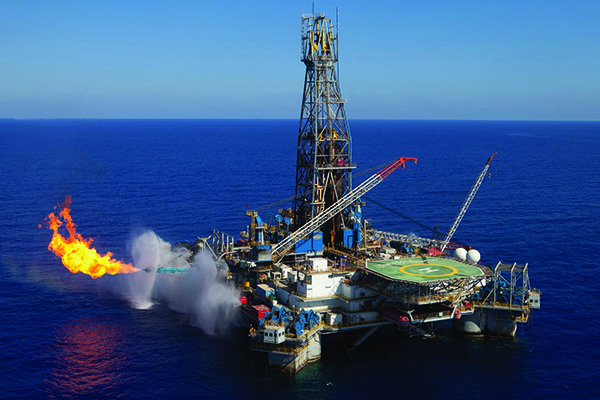July 2018, Vol. 245, No. 7
Features
Egypt: The Next Natural Gas Hotspot
By Nick Cunningham
The Eastern Mediterranean is becoming a major source of natural gas production, and Egypt is at the center of this emerging gas hub.
In February, Noble Energy and its partners reached an agreement with the Egyptian company Dolphinus Holdings to sell gas from offshore Israel to Egypt, a deal that could jumpstart a much wider campaign to develop natural gas in the Eastern Mediterranean. The deal is politically risky for Egypt, where dealings with Israel have historically been taboo. Nevertheless, after years of halting progress, the agreement is bolstering the region’s bid to transform itself into a sizable source of gas production, and potentially, exports.
Israel has been trying to develop the large gas deposits in the Eastern Mediterranean for more than a decade, with some success and some setbacks. Noble Energy leads a team that discovered two very large gas fields is Israeli waters, bringing some production online in recent years. But the company is still trying to scale up development. Regulatory challenges from Israel forced the consortium to sell off stakes in the fields a few years ago over fears of concentrated control in the hands of just a few companies. The uncertainty delayed development, although Noble is pressing on.
Meanwhile, Eni fast-tracked the development of the Zohr gas field in Egyptian waters, the largest discovery ever recorded in the Eastern Mediterranean. That field came online late last year and Egyptian officials believe it will be crucial to closing the country’s energy gap.
But the more recent deal that will see Noble ship gas to Egypt could spark more aggressive development of gas in the region. Wood Mackenzie said that the agreement could be pivotal in paving the way for more deals. “An initial deal had to be done to breathe confidence into the market,” WoodMac analyst Bas Percival told the WSJ.
Egypt has some idled LNG export capacity, and collecting gas from the Eastern Mediterranean – both in Egypt and in Israel – and routing the gas through Egyptian LNG export terminals could mean a new source of LNG for the global market.
The Wall Street Journal reports that Royal Dutch Shell is in talks with investors in both Egypt and Israel to help supply the export facility, which Shell owns. No deal has been announced yet, but the WSJ reports that Shell is considering a $30 billion 15-year plan to purchase gas from fields in Israeli and Cypriot waters, then liquefy the gas and export it through its facility in Egypt.
Shell and Eni sit on LNG export facilities, but gas production in Egypt went into steep decline several years ago due to price controls and lower investment from international companies. Now, with gas supply on the rise, those facilities could be called upon once again.
Meanwhile, the region received another jolt when Eni and Total announced yet another gas discovery in the Eastern Mediterranean in February, although this time it was located off the coast of Cyprus. The “Calypso 1” well suggests an extension of the “Zohr like” play, Eni said in a statement, referring to its enormous Egyptian gas field. Separately, Eni signed deals with Lebanon to explore off the country’s coast.
Antipathy between governments in the region could deter drilling. Turkish warships reportedly stopped Eni from drilling in Cypriot waters in February due to its non-recognition of the Greek Cypriot government. Meanwhile territory disputes between Israel and Lebanon could throw up new hurdles. But the thaw between Israel and Egypt is hard to overstate.
Still, the route for Israeli gas to Egypt is unclear. The gas could be moved from Israel through Jordan to Egypt, although that route has been subjected to attacks from militants in the Sinai. The companies could also build an offshore pipeline that runs from the gas field to Egypt, although that could also prove costly.
But with the proliferation of discoveries, the increase in production from both Israel and Egypt, and an emerging export option in Egypt, the Eastern Mediterranean could develop into a significant gas hub and source of gas exports. Wood Mackenzie estimates that the Eastern Mediterranean is home to 125 tcf of natural gas. P&GJ
Author: Nick Cunningham is a freelance writer on oil and gas, renewable energy, climate change, energy policy and geopolitics.






Comments